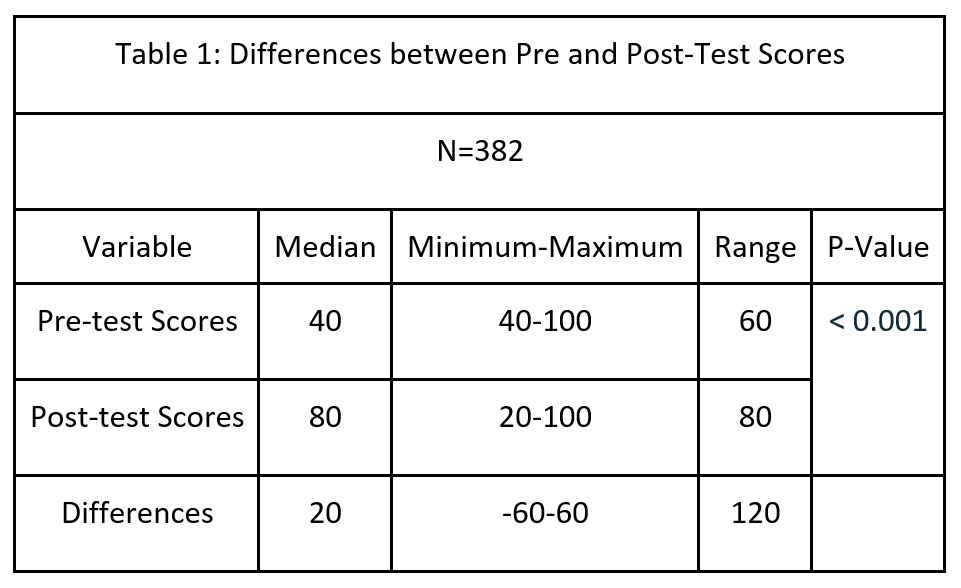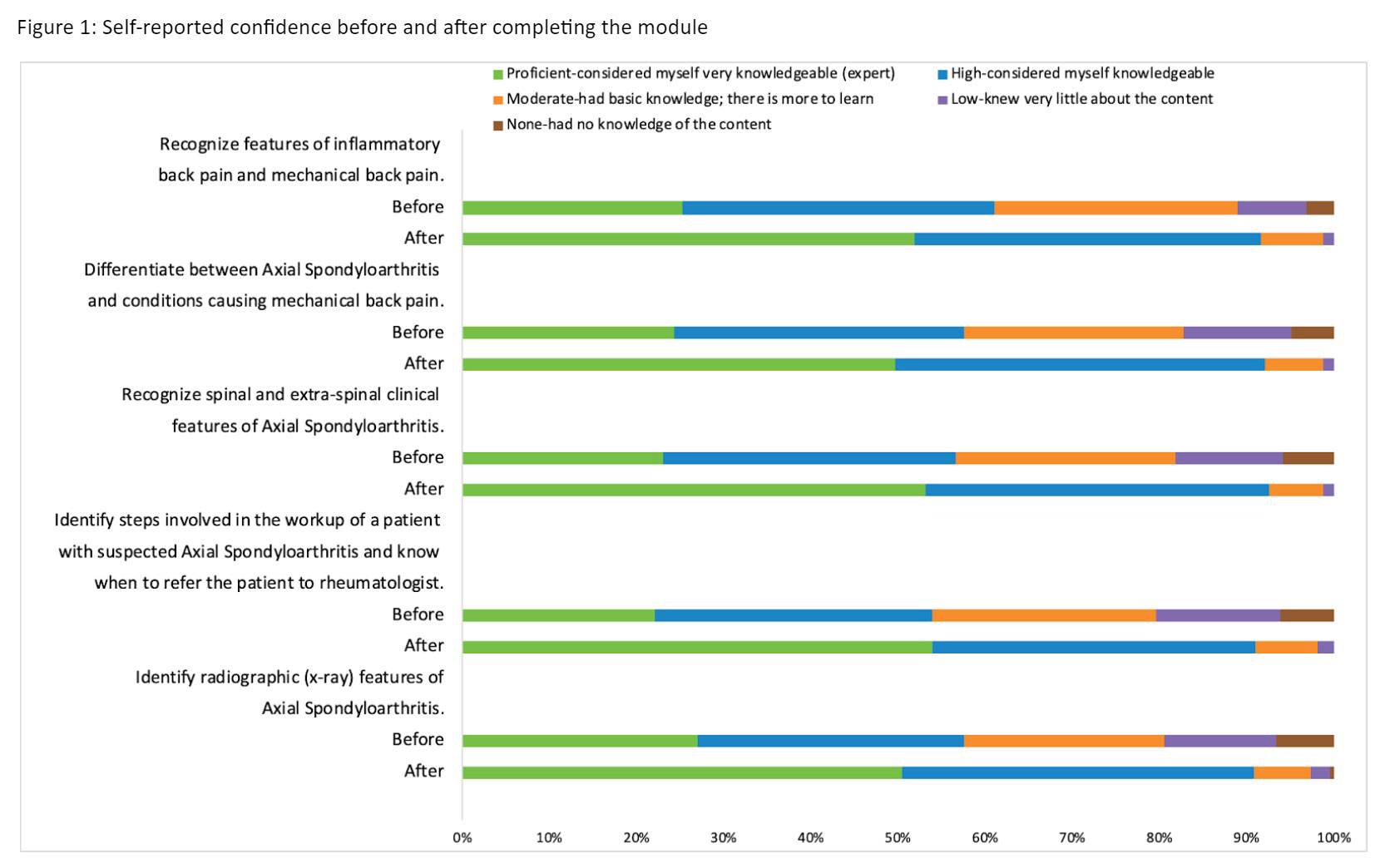Session Information
Session Type: Poster Session A
Session Time: 1:00PM-3:00PM
Background/Purpose: Lack of knowledge and awareness about axial spondyloarthritis (axSpA) among non-rheumatology providers results in delayed and missed diagnosis. To educate a large number of non-rheumatology providers we developed an online, asynchronous, case-based, branched narrative module and made it available free of cost on a continuing education platform. With the help of learner surveys, we sought to determine if completion of this module (a) improves knowledge of learners (b) improves self-reported confidence for diagnosing and referring axSpA patients (c) leads to actual referral of suspected axSpA among chronic back pain (CBP) patients to rheumatology. We also sought to assess the learner satisfaction.
Methods: This is an IRB-exempt, quasi-experimental pretest–posttest study. The content advisory committee consisting of 4 primary care providers and 4 chiropractors, provided oversight and guidance in the development of the educational content. The module was designed for non-rheumatology providers using Storyline 360® software following established methods, compliant with the learning industry standard SCORM (Sharable Content Object Reference Model). Each learner completed a pretest, the module, followed by a post-test and a survey. De-identified data was collected between the period of January 2022 to April 2022 and analyzed using IBM SPSS Statistics version 27. To evaluate primary outcome (improvement of learner knowledge), pre-test and post-test scores were compared using the Sign test. Secondary outcomes including learner reported self-confidence and learner satisfaction with the clinical relevance, stated objectives, and format of the module were determined by Likert scales. Descriptive statistics were used to report the number of referrals of suspected axSpA among CBP patients to rheumatology.
Results: Out of 498 who attempted the module, 76.7% (n=382) completed the module. Forty-two percent were physicians, 25% were nurses/nurse practitioners, 24% were physician assistants, 5% were chiropractors, 3% were student physicians, and 2% were other healthcare providers. The median score for the post test was higher than the pretest by 20% (p-value < 0.001) (Table 1). After completion of the module, learners reported an increase in their confidence level in the workup of patients with suspected axSpA. (Figure 1). Learners were satisfied with the clinical relevance, stated objectives, format of the module, and felt the module met their educational needs (Figure 2). Out of 382 participants who completed the module, four (1%) completed the 60-day post-survey by May 1, 2022. Of those 25% (n=1) had referred at least 1 case of suspected axSpA to rheumatology.
Conclusion: Our online educational module for axSpA enhances learners’ knowledge, confidence level and may improve early referral and diagnosis of axSpA in clinical practice. This online module can be used to train a larger number of non-rheumatology providers who are usually the front-line assessors of CBP patients. Continued data collection and further validation is required to evaluate if knowledge gained from this intervention actually translates into improved patient outcomes.
To cite this abstract in AMA style:
Kiwalkar S, Drummond S, Callender K, Aslanyan E, Danve A. Online Educational Module on Axial Spondyloarthritis Improves the Knowledge and Confidence of Non-rheumatology Providers [abstract]. Arthritis Rheumatol. 2022; 74 (suppl 9). https://acrabstracts.org/abstract/online-educational-module-on-axial-spondyloarthritis-improves-the-knowledge-and-confidence-of-non-rheumatology-providers/. Accessed .« Back to ACR Convergence 2022
ACR Meeting Abstracts - https://acrabstracts.org/abstract/online-educational-module-on-axial-spondyloarthritis-improves-the-knowledge-and-confidence-of-non-rheumatology-providers/



